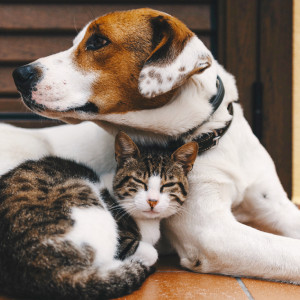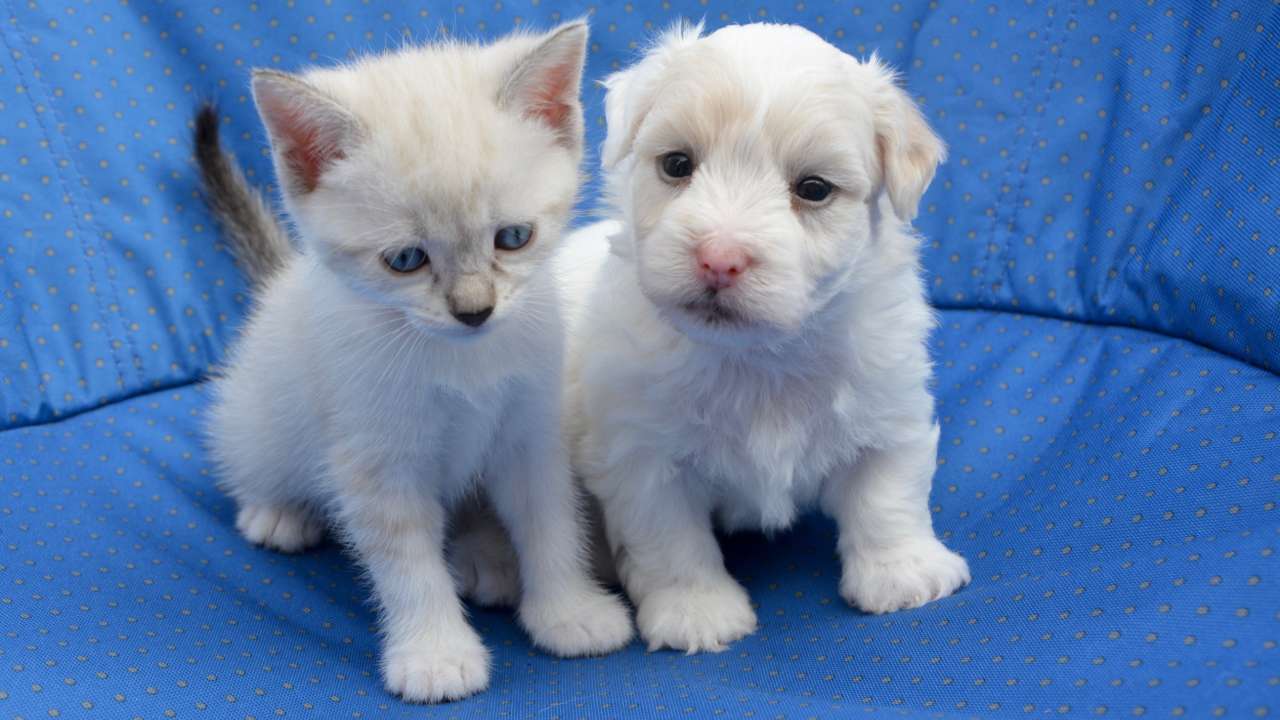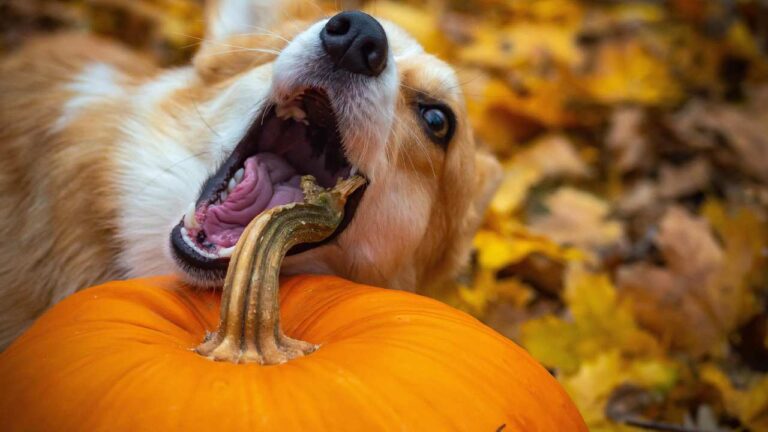Dog or Cat? – Many people dream about own pet. We are all aware that this is very important decision as we need to be 100% sure that we can afford a pet and we will have enough time to take care of it. When we finally know that we are getting a pet, we have to decide what furry friend we want and which one will suit the best our lifestyle. Usually, we choose between dogs and cats. Of course, whether it is better to own dog or cat is subjective and depends on individual circumstances and preferences. However, there are few things who can help us educated and conscious decision.
You should remember that dogs are often considered to be more social and active, making them good for people who enjoy outdoor activities and spending time with their pets.
Cats, on the other hand, are generally more independent and low-maintenance, making them ideal for people with busy lifestyles or those who prefer a more relaxed environment.
Ultimately, the decision to own dog or cat should be based on an individual’s lifestyle, living space, and ability to provide proper care and attention to the pet.
Cats and dogs are both very popular pets, but they have distinct differences:
- As you probably know the cats are generally smaller and more agile than dogs. They are known for their sharp retractable claws and independent nature, while dogs come in a variety of sizes and have strong jaws and a tendency to form strong bonds with their owners.
- Cats are generally more independent and aloof, while dogs are often very social and affectionate. Cats also tend to be more solitary animals, while dogs are pack animals that enjoy the company of both their owners and other dogs.
- Cats are generally easier to care for than dogs, as they require less attention and are more self-sufficient. They also use litter boxes to eliminate, while dogs require regular walks and trips outside.
- Dogs seem to be easier to train than cats, as they are more willing to learn and respond to commands. However, cats can also be trained to perform certain behaviors, although it may require more patience and persistence.
- Cats are often a better choice for those with a more sedentary lifestyle, as they do not require as much physical activity or space as dogs.
Discussing further our topic dog or cat, let’s try to separate both species for a second.
Let’s have a closer look at cats first. We said that cats are often considered low-maintenance pets because they are more independent and require less attention and interaction than dogs. They are able to entertain themselves for long periods of time and are generally content with spending time alone. Cats also have a reputation for being clean animals that groom themselves regularly, reducing the need for regular bathing. Additionally, cats have lower exercise requirements compared to dogs and are often happy to live in smaller living spaces, such as apartments. These factors can make cats easier to care for than dogs, especially for people with busy schedules or limited living space.
Cats are obligate carnivores, meaning they require meat in their diet to meet their nutritional needs. A balanced diet for a cat should consist of high-quality protein and fats, with limited carbohydrates. The best food options for cats are typically moist or canned food that is high in animal protein, such as chicken, fish, or liver. Some dry food can also be fed to cats, but it is important to choose a brand that is high in protein and low in carbohydrates. It is also important to ensure that the cat has access to fresh water at all times. It is best to consult with a veterinarian to determine the specific nutritional needs of your cat, as factors such as age, health, and activity level can impact the ideal diet for an individual cat.
You need to remember that cats can eat too much and become overweight. Overweight cats are at risk for a number of health problems, including joint pain, respiratory difficulties, and decreased mobility, and then can shorten a cat’s lifespan. To prevent overeating, it is important to monitor the amount and type of food a cat is eating, as well as their overall activity level.
The average lifespan of a domestic cat is 12 to 15 years, although some cats can live into their late teens or early twenties with proper care and nutrition. Indoor cats generally have a longer lifespan compared to outdoor cats, as they are protected from environmental hazards and diseases. Regular check-ups with a veterinarian and prompt treatment for any health issues can also help extend a cat’s lifespan. It’s important to keep in mind that each cat is unique and the lifespan of an individual cat may vary.

We know now a lot about cats, so, it is time to closer get to know dogs’ characteristic. They are often considered high-maintenance pets because they require more attention, interaction, and care compared to cats. Dogs are generally more social animals and require regular exercise, playtime, and mental stimulation. They also require regular training and obedience work to help them develop good behavior and to maintain their mental and physical health. Additionally, dogs need regular grooming, such as brushing and bathing, to keep their coat and skin healthy. Feeding dogs also requires more planning and preparation compared to feeding cats, as dogs typically eat more food and may have specific dietary needs. These factors can make dogs more demanding and require more time, energy, and resources to care for compared to cats. However, all your effort and time you spend with your pupil, will give you loyal and loving companion.
The ideal diet for a dog typically includes high-quality protein from meat, such as chicken, fish, or beef, as well as carbohydrates from grains, fruits, and vegetables. Fats, such as those from fish oil or olive oil, are also an important part of a dog’s diet and provide a source of energy as well as essential fatty acids. Vitamins and minerals, such as calcium and vitamin D, are also important for a dog’s overall health and well-being. It is important to consider a dog’s age, size, activity level, and any specific health needs when determining their ideal diet. Feeding a well-balanced commercial dog food is a convenient and nutritious option, but it is also possible to prepare homemade meals. It is best to consult with a veterinarian to determine the specific nutritional needs of your dog and to ensure that their diet is appropriate for their individual needs.
Similar as cats, dogs can eat too much and become overweight. Overweight dogs are at risk for a number of health problems, including joint pain, respiratory difficulties, decreased mobility, and decreased lifespan. Eating too much food, or consuming high-calorie foods, can lead to obesity, which is a serious condition that can have a significant impact on a dog’s health and his lifespan. Regular weigh-ins and monitoring of your dog’s body condition with veterinarian can help ensure that they are maintaining a healthy weight.
The average lifespan of a domestic dog varies depending on the breed, size, and overall health. On average, small dog breeds tend to live longer than larger breeds. The lifespan of a dog can range from 10 to 13 years for smaller breeds, and 6 to 8 years for larger breeds. Some breeds, such as Chihuahuas or Pomeranians, can live up to 20 years or more with proper care and nutrition. Regular check-ups with a veterinarian and prompt treatment for any health issues can also help extend a dog’s lifespan. It is important to keep in mind that each dog is unique and the lifespan of an individual dog may vary.
So now we know characteristics of both dogs and cats., but we still need some more information to be able to decide: dog or cat? It is time to investigate more thoroughly subject of these pets’ loyalty.
You have to remember that loyalty can vary greatly among individual dogs and cats and can depend on various factors, such as socialization, training, and personality. However, dogs are often considered more loyal than cats due to their strong pack instincts and their natural desire to please their owners. Dogs have been bred for thousands of years to work with and protect humans, and they are often very affectionate and dedicated to their owners. Dogs can form strong bonds with their owners and are often referred to as “man’s best friend.” On the other hand, cats are generally more independent animals and may not display the same level of loyalty as dogs, although they can still form close relationships with their owners and show affection. Whether dog or cat is more loyal is very subjective and depends on the individual animal and the relationship they have with their owner.
For those who still cannot decide which pet they should choose, I would like to say that yes, you can keep both dogs and cats together as pets. However, it’s important to consider the fact that they have different temperaments and needs, and they may not always get along. It’s important to introduce them gradually and supervise their interactions, especially if they are new to each other. Training, proper socialization, and positive reinforcement can also help build a good relationship between dogs and cats.
It’s important also to provide each pet with their own space and resources, such as food and water bowls, beds, and toys, to avoid competition and conflict. Proper management and a good understanding of each species’ behavior and needs can help ensure a harmonious relationship between dogs and cats in a multi-pet household.
If you have any experience with dogs or cats you would like to share with us, please join our discussion at BCtalk.ca. We would like to hear your story and find out what and why would be your pick: dog or cat?
If you are proud dog owner, you can save a lot on scented poop bags today! Your link is here: https://amzn.to/3YnD7sc
If you are proud cat owner, get the product cats love – ScoopFree Premium Blue Non Clumping Crystal Cat Litter at https://amzn.to/40Mu6ul




